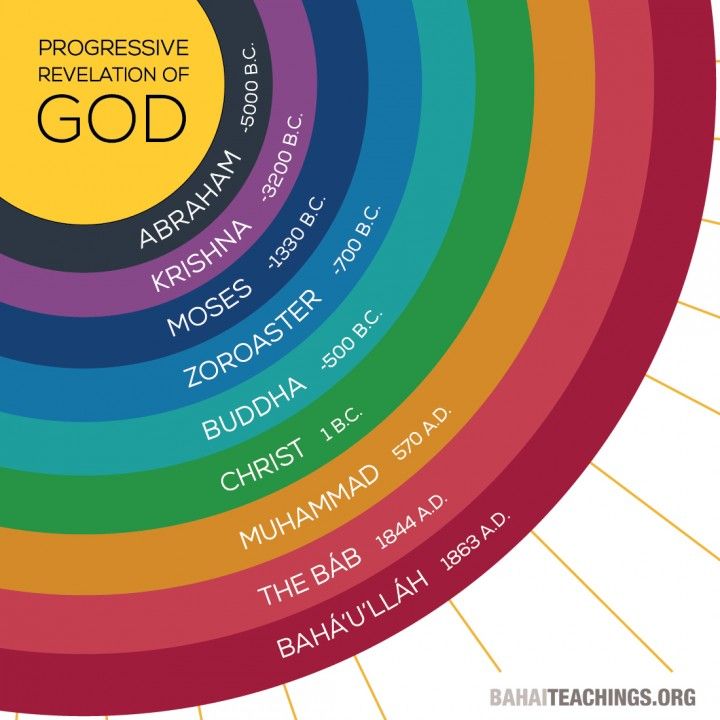The intersection of science and religion has long incited robust discussion, particularly among the followers of the Bahá’í Faith. Delving into the essence of Bahá’í teachings reveals a harmonious approach to these seemingly disparate realms. The Bahá’í perspective on science for children intertwines with profound tenets of spirituality, fostering an environment where both can coexist and flourish. This article delineates the salient features of this approach, offering insights on how Bahá’í teachings can facilitate a child’s comprehension of science while nurturing their spiritual development.
1. The Synergy of Science and Religion
The Bahá’í Faith posits that science and religion are two complementary systems of knowledge. This perspective engenders a holistic worldview, wherein scientific inquiry and spiritual exploration are not in conflict but are instead varyingly illuminated. For children, understanding this synergy helps them develop a balanced outlook on life. The Bahá’í writings emphasize that true science must ultimately lead to greater understanding of the universe and the Creator. As such, young Bahá’ís are encouraged to approach scientific studies with reverence and curiosity, fostering a sense of wonder and exploration.
2. Preparing Young Minds for Scientific Inquiry
Bahá’í teachings advocate for the importance of education in the formative years. Parents and educators are encouraged to provide children with opportunities to engage actively with scientific concepts. Hands-on experiments, field studies, and engaging educational resources serve to inspire a child’s interest in the sciences. Employing an experimental approach not only enhances cognitive skills but also aligns with the Bahá’í principle that knowledge should be pursued cautiously and with the intent of bettering mankind.
3. Encouraging Critical Thinking
Critical thinking is paramount in navigating both scientific and religious realms. Bahá’í teachings encourage children to ask questions and seek answers that resonate with their experiences. Through the lens of the Bahá’í Faith, children learn to appreciate diverse viewpoints and develop a well-rounded perspective. This approach can facilitate a rigorous academic environment while instilling the ethical tenets of the Faith, such as justice and truthfulness. By fostering critical thought, children learn to discern fact from conjecture in their scientific studies while reinforcing their spiritual beliefs.
4. Nature as a Teacher
According to Bahá’í philosophy, nature serves as a profound resource for spiritual education. By observing the natural world, children can engage in scientific inquiries while simultaneously nurturing their spiritual growth. Activities such as exploring ecosystems, studying the life cycles of plants and animals, or understanding the principles of physics through the laws of motion can reveal the intricate laws that govern the universe. These experiences underscore the unity of creation and demonstrate how scientific understanding can lead to greater reverence for the Creator.
5. Science as a Means to Promote Unity
Bahá’í teachings emphasize the importance of unity among diverse peoples and cultures. As children learn about various scientific disciplines, they are also educated about the interconnectivity of human experiences across the globe. Projects that examine global challenges—such as climate change, health crises, or technological advancements—instill in children a sense of responsibility towards humanity. By understanding these interconnected issues, young Bahá’ís can more effectively embody the principles of service and altruism advocated within their faith.
6. Integrating Scientific Learning with Spiritual Growth
Incorporating spiritual lessons into scientific discussions can reinforce a child’s understanding of the intrinsic connection between the two. For instance, lessons on the laws of thermodynamics can be juxtaposed with teachings on the laws of creation as found in scripture. This parallelism encourages a nuanced understanding of the universe, likening scientific concepts to spiritual realities. Engaging in discussions that stimulate both scientific analysis and spiritual reflection can solidify a child’s ability to relish in discovery while nurturing their moral framework.
7. Cultivating Compassionate Stewardship
As the impending guardians of the Earth, children within the Bahá’í community are trained to care for their environment. Scientific education contributes to a foundation of ethical stewardship, emphasizing the importance of responsible interaction with nature. Educational initiatives that promote sustainability, conservation, and ecological respect resonate with Bahá’í ethics, nurturing a sense of duty to protect and cherish the world. Encouraging children to become advocates for the environment fosters their identity as compassionate beings committed to service, aligning their scientific knowledge with spiritual obligations.
8. Utilizing Technology as a Learning Tool
In today’s digital age, the integration of technology in learning is inescapable. Bahá’í teachings encourage the judicious use of technology to complement educational efforts. Educational platforms and resources can enhance a child’s scientific understanding and facilitate discussions that explore the ethical ramifications of scientific advancements. Moreover, access to a wealth of information fosters a diverse and inclusive learning environment, empowering children to investigate topics deeply and independently.
9. The Role of Community in Learning
Finally, the Bahá’í community plays an instrumental role in shaping the educational experiences of children. Collaborative learning experiences, such as study circles and group science projects, promote a spirit of unity and shared purpose. These communal initiatives reinforce the belief that knowledge is most effectively cultivated in a supportive environment where ideas can flourish. Through collaboration, children learn the value of teamwork, respect for others’ ideas, and the strength of collective understanding.
In summary, the Bahá’í approach to intertwining science and spirituality provides a rich framework that supports the holistic development of children. By fostering inquiry, instilling respect for nature, and promoting ethical stewardship, Bahá’í teachings prepare young minds to navigate the complexities of the world. The resulting synergy not only empowers children intellectually but also emotionally and spiritually, ensuring they grow as compassionate, well-rounded individuals committed to both scientific exploration and the betterment of humanity.
